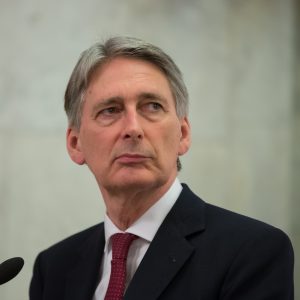
Hammond noted that consumers and businesses alike are refraining from making spending or investment decisions until they have a clearer idea of “what the outcome is or what the direction of travel is.”
Ahead of an EU summit in Brussels next week, Hammond said that this uncertainty must be removed “as soon as possible” to avoid further damaging the economy, and stressed that the leaders of EU members need to “think very carefully about the need for speed” in the negotiation process.
However, Hammond also told the committee that the Treasury had “no plans” to publish any reports assessing how Brexit might play out.
The Chancellor also warned that the UK has to be realistic about the possible Brexit scenarios and “consider the possibility of a bad-tempered breakdown in negotiations where we have non-co-operation or a worst case scenario where people are not necessarily acting in their own economic self-interest.”
In addition to the £412m which has already been allocated to various departments in preparation for Brexit over the next four years, Hammond said that the Treasury was “prepared to spend when we need to spend against the contingency of a ‘no deal’ outcome.”
“We do have planning for all scenarios, including a ‘no deal’ scenario.” He said, “I am clear we have to be prepared for a ‘no deal’ scenario, unless and until we have clear evidence that this is not where we will end up.”
“Although of course we hope for a different outcome, we cannot be certain of that different outcome.”
However, the Chancellor also stated that he was not ready to spend billions of taxpayers’ money “in advance of the need to spend.”
The Chancellor’s comments on a Brexit-dampened economy come in the wake of a recent International Monetary Fund (IMF) report, in which the UK was the only major economy not to see its growth forecast upgraded – with the IMF predicting that UK growth would slow from 1.8% in 2016 to 1.7% this year, and 1.5% in 2018.
Commenting on the IMF report, Hammond said: “It reflects the sense that, while the UK’s economy is fundamentally strong and in good shape, we are being affected by uncertainty around the negotiation process that we are engaged in.”
“This is a shared problem,” he added, “and if we don’t talk about it, we are not going to get to a solution in a timescale that allows the future partnership that I do believe the vast majority of our European partners want to achieve.”
















